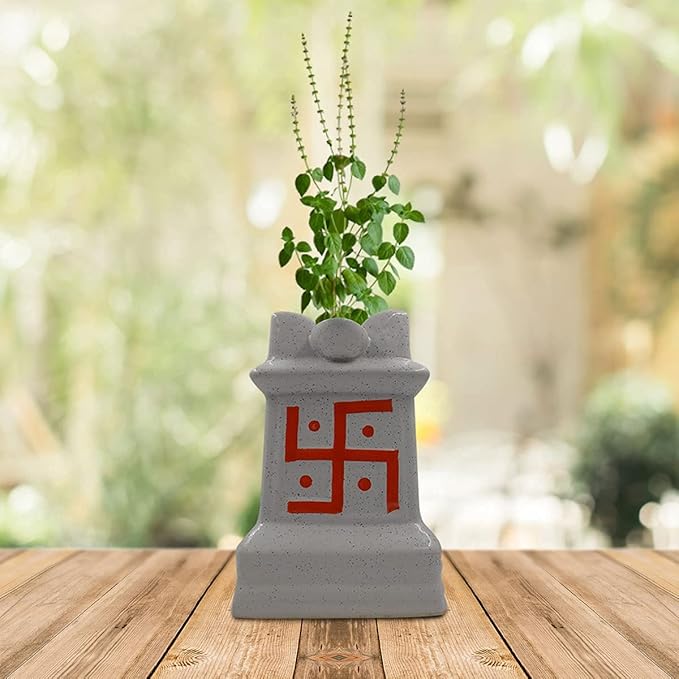Tulsi which is also known as Holy Basil is one of the most important plants in Hindu culture. It is not just a plant but a divine symbol of faith, purity, and devotion. For centuries, this plant has been an integral part of Indian homes, traditions, and rituals. It is believed that keeping this plant at home brings blessings, positivity, and prosperity.
Let us explore the reasons why Tulsi is grown in every household and its significance in festivals and fasts.
Table of Contents
Spiritual Importance of Tulsi

Tulsi is considered a manifestation of Goddess Lakshmi, the consort of Lord Vishnu. According to Hindu beliefs, Tulsi is a pure and sacred plant that connects humans with the divine. Worshipping it daily is said to remove negative energies and purify the environment.
Basil plant is also associated with various gods, especially Lord Krishna and Lord Vishnu. It is believed that offering Tulsi leaves to these deities during prayers pleases them and fulfills devotees’ wishes. The presence of this plant in a home is thought to bring peace, health, and prosperity.
In Hindu scriptures, basil is often called “The Queen of Herbs” and is regarded as a bridge between heaven and earth. Its role in rituals signifies its importance as a protector and purifier.
Tulsi in Festivals and Fasts
This plant is an essential part of many Hindu festivals and fasts. It holds a prominent place in rituals, especially those dedicated to Lord Vishnu and Lord Krishna.
Tulsi Vivah
Tulsi Vivah is a special festival that marks the symbolic wedding of the Tulsi plant with Lord Vishnu, represented by the Shaligram stone. This festival is celebrated with devotion and enthusiasm, usually in the month of Kartik (October-November).
During Tulsi Vivah, the plant is adorned with colorful decorations, and rituals similar to a traditional Hindu wedding are performed. This festival symbolizes the union of nature and divinity, and it is believed to bring peace and happiness to families.
Chhath Puja and Other Rituals
In Chhath Puja, basil leaves are often used during prayers and offerings to the Sun God. The plant’s sacredness is also highlighted in festivals like Janmashtami and Ekadashi, where its leaves are offered to Lord Krishna and Lord Vishnu.
This plant is also important during fasting rituals. Devotees consume Tulsi-infused water as it is believed to purify the body and mind. The plant’s medicinal properties make it an ideal offering during fasts.
Why Tulsi is Planted in Every Home

The tradition of planting basil in homes has both spiritual and practical reasons. A basil plant is often placed in a courtyard or near the main entrance of a house. This practice is believed to attract positive energies and ward off evil spirits.
Symbol of Devotion
The basil plant is worshipped daily in many households. Lighting a lamp near the plant and offering water is a common ritual that signifies devotion and gratitude.
Purifier of Environment
This plant is known for its ability to purify the air by releasing oxygen and absorbing harmful gases. It is also believed to cleanse the surroundings of negative energy, making it an ideal plant for every home.
Health Benefits
Apart from its spiritual value, this plant has numerous health benefits. Its leaves are rich in antioxidants and have anti-bacterial and anti-inflammatory properties. Many people consume its leaves or use them in teas to boost immunity and promote overall well-being.
Basil is much more than a plant in Hindu culture. Its spiritual importance, role in festivals, and presence in daily rituals make it an essential part of Indian households. Having this plant at home is a timeless tradition that not only brings blessings but also promotes a sense of peace, health, and devotion. Whether for religious purposes or its health benefits this plant continues to be cherished as a sacred and divine gift of nature.
If you are looking to buy authentic, premium and aromatic incense, or hawan cups for your daily puja rituals, consider buying our products by clicking this link.







